 We sincerely hope that it’s not you, because the bridge is not actually for sale, and anyone telling you otherwise is trying to part you from your money. This is a pretty well-known swindle, but the reason for its notoriety is that, back in the day, a lot of aspiring bridge-buyers had to face some serious disappointment. The Brooklyn Bridge was completed in 1883, at a time when a massive influx of immigrants was moving through Ellis Island and into New York City. Not all of these were the poor, huddled refugees we often picture. Plenty of them came with cash in hand, ready to buy property, invest in business, and take their own shot at the American dream. Sadly, they were the perfect mark for any conman with a convincing pitch and a “For Sale” sign. The bridge’s immense size made it easy for swindlers to set up shop out of view of the police, and its proximity to Ellis Island offered an endless stream of potential “buyers.” As time passed, however, immigrants began coming with an increased awareness of America’s customs and practices, making them immune to this particular crime. By the 1920s, “buying the Brooklyn Bridge” had already slipped into popular vernacular as a classic, old-time hoax.
We sincerely hope that it’s not you, because the bridge is not actually for sale, and anyone telling you otherwise is trying to part you from your money. This is a pretty well-known swindle, but the reason for its notoriety is that, back in the day, a lot of aspiring bridge-buyers had to face some serious disappointment. The Brooklyn Bridge was completed in 1883, at a time when a massive influx of immigrants was moving through Ellis Island and into New York City. Not all of these were the poor, huddled refugees we often picture. Plenty of them came with cash in hand, ready to buy property, invest in business, and take their own shot at the American dream. Sadly, they were the perfect mark for any conman with a convincing pitch and a “For Sale” sign. The bridge’s immense size made it easy for swindlers to set up shop out of view of the police, and its proximity to Ellis Island offered an endless stream of potential “buyers.” As time passed, however, immigrants began coming with an increased awareness of America’s customs and practices, making them immune to this particular crime. By the 1920s, “buying the Brooklyn Bridge” had already slipped into popular vernacular as a classic, old-time hoax.
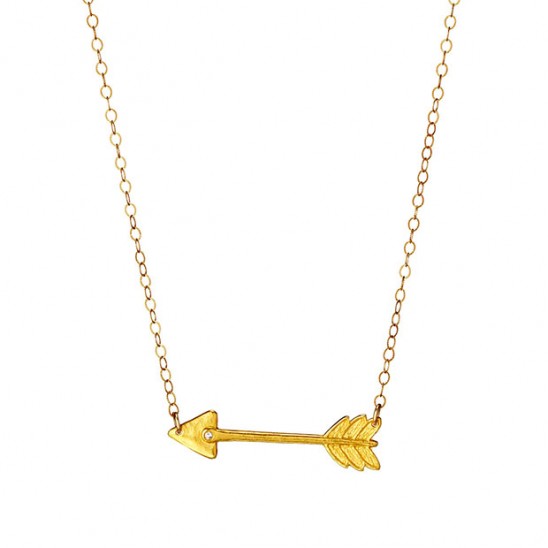 In spite of what you learned watching super hero movies, even with super strength you could never transform a chunk of coal into a diamond. For one thing, coal is called a “fossil fuel” because it’s formed from the remains of plant and animal life from 300 million years ago. Geologists indicate that diamonds, on the other hand, were formed billions of years ago, long before dinosaurs ever ruled the earth. Secondly, diamonds are made from a single, pure element—carbon. Coal, again because of its fossil fuel background, is full of elemental impurities. Coal also forms at a depth rarely more than two miles beneath the surface of the earth, and pressure at that depth is not sufficient to crystalize the carbon. Diamonds form at least 87 miles beneath the earth’s crust and are carried toward the surface by rare, deep-sourced volcanic eruptions. It is true, however, that charcoal is full of carbon, but without all of the extreme conditions that form similar matter into the hardest substance on earth, purified coal turns into an entirely different form of carbon—soft, crumbly graphite.
In spite of what you learned watching super hero movies, even with super strength you could never transform a chunk of coal into a diamond. For one thing, coal is called a “fossil fuel” because it’s formed from the remains of plant and animal life from 300 million years ago. Geologists indicate that diamonds, on the other hand, were formed billions of years ago, long before dinosaurs ever ruled the earth. Secondly, diamonds are made from a single, pure element—carbon. Coal, again because of its fossil fuel background, is full of elemental impurities. Coal also forms at a depth rarely more than two miles beneath the surface of the earth, and pressure at that depth is not sufficient to crystalize the carbon. Diamonds form at least 87 miles beneath the earth’s crust and are carried toward the surface by rare, deep-sourced volcanic eruptions. It is true, however, that charcoal is full of carbon, but without all of the extreme conditions that form similar matter into the hardest substance on earth, purified coal turns into an entirely different form of carbon—soft, crumbly graphite.
 Forget water in your ears, too much swimming and you’ll emerge from the water sporting the fingertips of a wrinkled prune. Is that an unattractive side effect of showing off your cannonball or an awesome comic book-worthy evolutionary advantage? Answer: you’re a futuristic marvel! Studies have shown that the distinctive wrinkling improves your grip in water. Since the pruning also happens on our toes, evolutionary biologists suggest that it could have helped our ancestors get better footing in the rain or wet conditions. Feeling a little skeptical? Try picking up a wet marble with dry fingers and then again with wrinkled ones. Science!
Forget water in your ears, too much swimming and you’ll emerge from the water sporting the fingertips of a wrinkled prune. Is that an unattractive side effect of showing off your cannonball or an awesome comic book-worthy evolutionary advantage? Answer: you’re a futuristic marvel! Studies have shown that the distinctive wrinkling improves your grip in water. Since the pruning also happens on our toes, evolutionary biologists suggest that it could have helped our ancestors get better footing in the rain or wet conditions. Feeling a little skeptical? Try picking up a wet marble with dry fingers and then again with wrinkled ones. Science!
 As kids, it made perfect sense for a tiny ocean to be contained within the confines of a beautiful shell. What else would explain that soft whoosh-ing sound you heard when you held it up to your ear? It was obviously the same magic that brought stuffed animals to life when you left the room. Though we’re still convinced that teddy bears have feelings, science has taught us that there is indeed reasoning behind any phenomenon. So if it’s not the ocean inside that shell, what is it? Turns out it’s just good old fashioned ambient noise, which you wouldn’t normally hear on your own. However, the shell’s hard and curved internal surfaces act as a resonator, reflecting different sounds depending on the shell’s size and shape. The fact that the noise sounds like an ocean is just a romantic coincidence—put an empty glass up to your ear with your hand cupped over it and you’ll hear the same sound. Be that as it may, nothing beats re-living a day spent at the beach than listening to the soothing sounds within a beautiful conch shell.
As kids, it made perfect sense for a tiny ocean to be contained within the confines of a beautiful shell. What else would explain that soft whoosh-ing sound you heard when you held it up to your ear? It was obviously the same magic that brought stuffed animals to life when you left the room. Though we’re still convinced that teddy bears have feelings, science has taught us that there is indeed reasoning behind any phenomenon. So if it’s not the ocean inside that shell, what is it? Turns out it’s just good old fashioned ambient noise, which you wouldn’t normally hear on your own. However, the shell’s hard and curved internal surfaces act as a resonator, reflecting different sounds depending on the shell’s size and shape. The fact that the noise sounds like an ocean is just a romantic coincidence—put an empty glass up to your ear with your hand cupped over it and you’ll hear the same sound. Be that as it may, nothing beats re-living a day spent at the beach than listening to the soothing sounds within a beautiful conch shell.
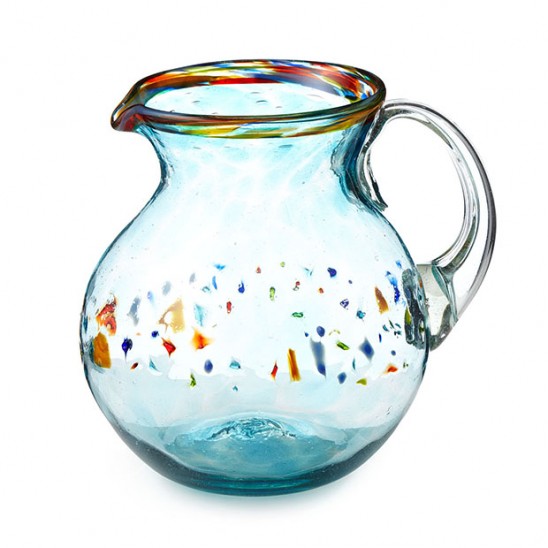 It’s your go-to when you’re packing for a picnic and the nicest thing to offer an overheated repairman who has been working on your broken AC unit for the last three hours. So what is it that makes lemonade so thirst quenching? Turns out sour flavors stimulate salivation more than any other taste, while acidity masks less-refreshing flavors like sugar. In addition, we’ve been conditioned to associate citrus with refreshment. From air fresheners to facial cleansers, the “bright” and “fresh” feel of grapefruit soap or lemon room sprays promise to keep things light and perky. However, we argue that the best spokesperson for a tall glass of lemonade is that little makeshift stand down the street with the toy cash register and the cute kid with a pitcher of the good stuff.
It’s your go-to when you’re packing for a picnic and the nicest thing to offer an overheated repairman who has been working on your broken AC unit for the last three hours. So what is it that makes lemonade so thirst quenching? Turns out sour flavors stimulate salivation more than any other taste, while acidity masks less-refreshing flavors like sugar. In addition, we’ve been conditioned to associate citrus with refreshment. From air fresheners to facial cleansers, the “bright” and “fresh” feel of grapefruit soap or lemon room sprays promise to keep things light and perky. However, we argue that the best spokesperson for a tall glass of lemonade is that little makeshift stand down the street with the toy cash register and the cute kid with a pitcher of the good stuff.
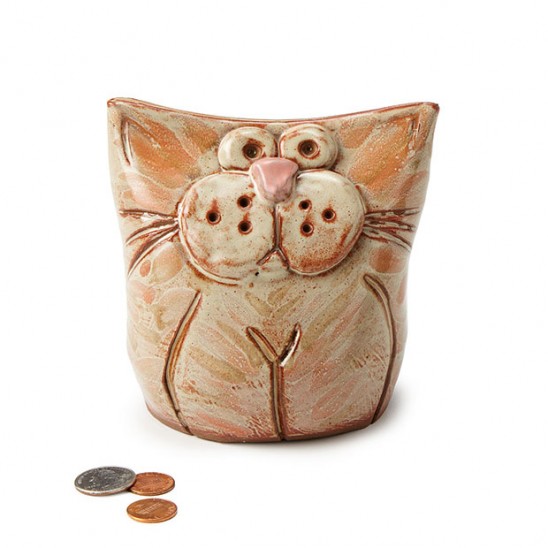 Does your cat exhibit symptoms such as wheezing, coughing or difficulty breathing? If so, it may have feline asthma, a condition found in an estimated one out of every 200 cats. An inflammation of the lungs, it can be brought on by household dust, cigarette smoke, some types of kitty litter, and—irony of ironies—human dander. Feline asthma rates have increased as more and more cats are kept solely indoors, preventing them from finding fresh air and relief from their man-made allergies. As with people, there are inhalers available to treat aggravated cases, or sometimes even hospitalization can be called for, although its primary benefit may simply be removing the cat from the home environment. Or perhaps the best solution would be for cats to consider switching to hypoallergenic breeds of owner.
Does your cat exhibit symptoms such as wheezing, coughing or difficulty breathing? If so, it may have feline asthma, a condition found in an estimated one out of every 200 cats. An inflammation of the lungs, it can be brought on by household dust, cigarette smoke, some types of kitty litter, and—irony of ironies—human dander. Feline asthma rates have increased as more and more cats are kept solely indoors, preventing them from finding fresh air and relief from their man-made allergies. As with people, there are inhalers available to treat aggravated cases, or sometimes even hospitalization can be called for, although its primary benefit may simply be removing the cat from the home environment. Or perhaps the best solution would be for cats to consider switching to hypoallergenic breeds of owner.
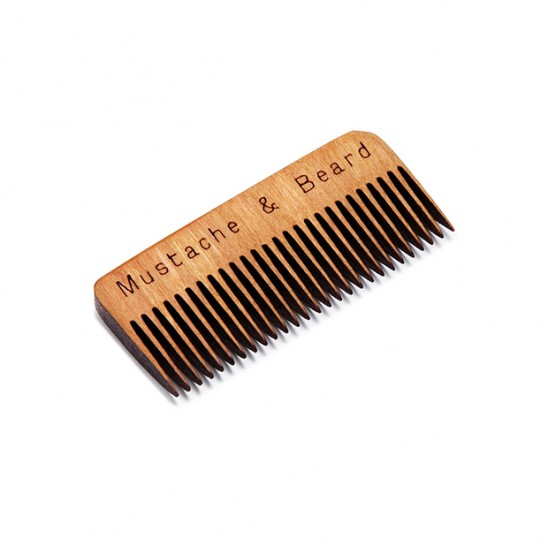 If you’re the Russian emperor, then you certainly might think so. In 1698, Peter the Great returned to Russia after a tour of Europe, ready to bring his own country into the “modern” world. In addition to governmental reforms, economic reforms and military advancement, he wanted to update the nation’s fashion sense—and clean-shaven faces were all the rage on the Continent. Peter started his campaign right away, at the formal reception welcoming him back from his European tour. After greeting his guests, he brought out a straight razor and began shaving off the men’s beards! The guests were horrified, but were in no position to deny their ruler. He made beardlessness the law, and his police were even known to shave offenders in the street. There was, not surprisingly, much resistance to such a decree, and eventually Peter compromised. Instead of repealing the law, he instituted a beard tax. Those who wished to grow their facial hair could receive permission to do so for a yearly sum, which added to Peter’s coffers while allowing his subjects to save face.
If you’re the Russian emperor, then you certainly might think so. In 1698, Peter the Great returned to Russia after a tour of Europe, ready to bring his own country into the “modern” world. In addition to governmental reforms, economic reforms and military advancement, he wanted to update the nation’s fashion sense—and clean-shaven faces were all the rage on the Continent. Peter started his campaign right away, at the formal reception welcoming him back from his European tour. After greeting his guests, he brought out a straight razor and began shaving off the men’s beards! The guests were horrified, but were in no position to deny their ruler. He made beardlessness the law, and his police were even known to shave offenders in the street. There was, not surprisingly, much resistance to such a decree, and eventually Peter compromised. Instead of repealing the law, he instituted a beard tax. Those who wished to grow their facial hair could receive permission to do so for a yearly sum, which added to Peter’s coffers while allowing his subjects to save face.
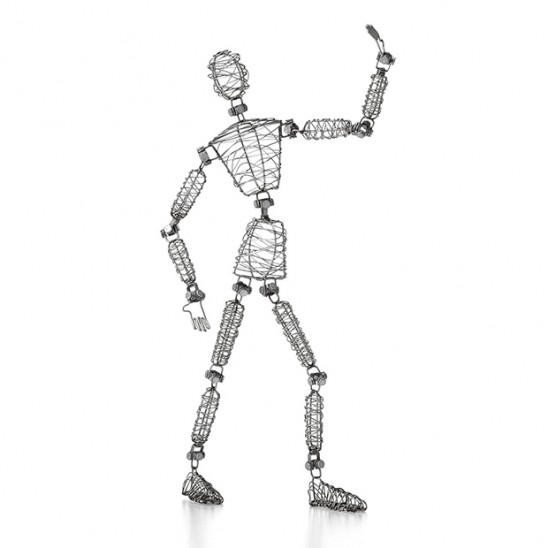 You might be surprised to learn the word “chauvinist” is based on a person’s name—that would be Nicolas Chauvin, of France. Chauvin was famous not for his mistreatment of women, but for his self-sacrificing patriotism. If the stories are to be believed (and some historians suggest they should not be), Chauvin was a soldier who served in the armies of Napoleon Bonaparte. So fierce was his loyalty to his leader that he continued his career as a soldier even after seventeen combat wounds, including a broken shoulder, three lost fingers, and a disfiguring scar across his face. Fighting in the doomed battle at Waterloo, he is reputed to have shouted, “The Old Guard dies, but does not surrender!” In the generation after Waterloo, however, Napoleon became an object of general ridicule, and Chauvin’s unquestioning allegiance was popularized as an example of foolish fanaticism. It wasn’t until the feminist movement in the 20th century that this term came to be applied to unthinking devotion to one’s own gender.
You might be surprised to learn the word “chauvinist” is based on a person’s name—that would be Nicolas Chauvin, of France. Chauvin was famous not for his mistreatment of women, but for his self-sacrificing patriotism. If the stories are to be believed (and some historians suggest they should not be), Chauvin was a soldier who served in the armies of Napoleon Bonaparte. So fierce was his loyalty to his leader that he continued his career as a soldier even after seventeen combat wounds, including a broken shoulder, three lost fingers, and a disfiguring scar across his face. Fighting in the doomed battle at Waterloo, he is reputed to have shouted, “The Old Guard dies, but does not surrender!” In the generation after Waterloo, however, Napoleon became an object of general ridicule, and Chauvin’s unquestioning allegiance was popularized as an example of foolish fanaticism. It wasn’t until the feminist movement in the 20th century that this term came to be applied to unthinking devotion to one’s own gender.
